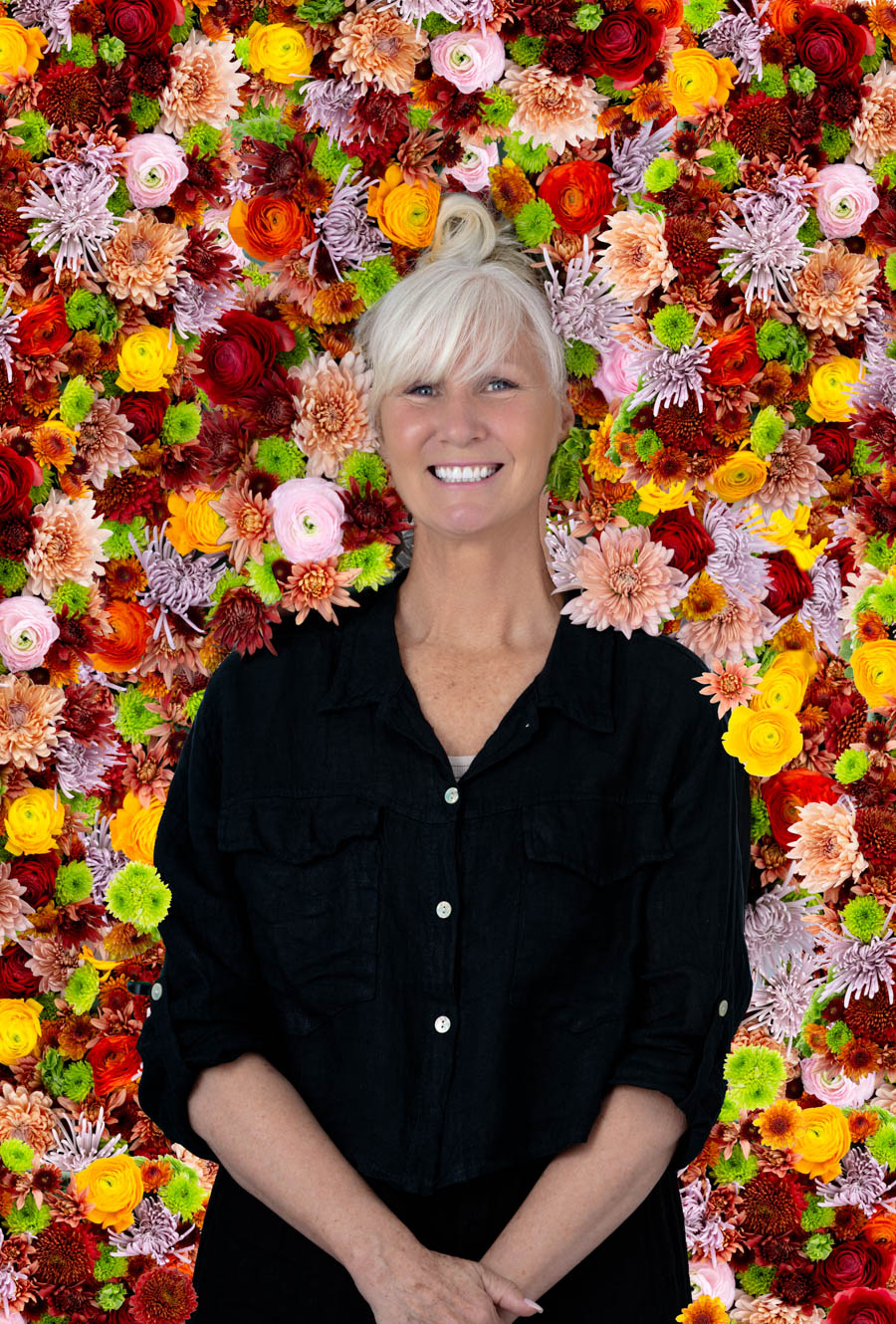It looks like something out of a dream. A carpet of flowers, stretched out as far as the eye can see, millions upon millions of crushed petals arranged in intricate designs, their bright colors pointing toward the heavens. Without having seen this type of artwork in real life, it can be difficult for one to conceptualize what it might actually look like. However, this fall, for the first time ever, the Sarasota International Chalk Festival is inviting delegations from multiple countries of artists who specialize in this unique and rare art form.
This November, various traditions of flower tapestries will be on display at Floralia Infiorata, a special exhibition by the Chalk Festival. Teams of artists from Italy, Spain, India, Mexico and Japan, will work together with local volunteers to transform pavement into paintings–albeit these are made from crushed flower petals, sand, finely ground sawdust and other natural materials. These artists bring not only their team and their tools, but rich histories within the art form, dating back hundreds and even thousands of years, all with distinct identities.
Teams from Italy will represent iterations of “Infiorata”, or decorating with flowers, an artistic discipline with devotional origins from the Baroque period that remains popular around the country. From India, a team will represent the “Rangoli” tradition, an artistic practice deploying mainly sand to create often religious imagery that dates back thousands of years on the Indian subcontinent. A delegation from Mexico practices a tradition known as ‘Alfombras de Aserrín’, introduced to them by Spain some 400 years ago, specializing in the use of finely ground sawdust to create expansive works of art.
The preservation of artistic cultural histories such as these, are a large part of why the Chalk Festival, which premiered in 2007, was first created. The entire idea of a festival dedicated to pavement art–which itself traces its origins back to the Madonnari artists of 16th century Italy—was not only to provide a place for these artists to flourish, but also to expose North-American audiences to art-forms outside of the mainstream.
It’s a mission that festival founder Denise Kowal has devoted herself to since the festival first transformed the streets of Sarasota in 2007. Bringing the delegations of flower carpet artists to Sarasota—which was originally planned for 2022 but delayed due to Hurricane Ian—is a near herculean task: thousands upon thousands of different types of flowers, sands and sawdusts must be ordered to Sarasota and then finely sorted for the artists upon their arrival. “The materials are insanely expensive. We’re ordering those in advance. Every team has picked their designs and figured out exactly the amount they need,” says Kowal. “We’re also putting out the call for local volunteers to be a part of these teams. They’ll do a number of things, from helping source local materials like flowers, sand, coffee grinds, whatever it may be and help prepare the materials and assemble the artwork itself. These teams will instruct the artists that they’re working with and community people working with them in how to help create these carpets.”
Just as different teams use different materials, from the volcanic ash of the team from Tenerife, Spain to the crushed flower petals of the delegation from Japan, so do these traditions all have differing rules and protocol to follow when creating their art. The group from Genzano di Roma, for instance, uses whole flower petals, while the pioneering 3-D artist from Spello, Italy uses crushed flower petals. These idiosyncrasies, touchstones of cultural heritage, are more examples of why it is so essential to preserve these cultures. It’s why Kowal—who traveled to multiple Infiorata festivals in Spain and Italy over the summer and was asked to speak at the International Ephemeral Art Congress in Barcelona—has gone to such lengths to bring these delegations to Sarasota. “These artists spend generations learning these techniques. There’s an immense communal aspect to it, where the gathering of people and the spirit behind it is really magical to experience. I want to bring that to Sarasota and show the different cultures of this art form,” says Kowal. “This is a very historic moment for us. It’s the first time in this country that an organization has hosted multiple delegations of flower carpet artists at one time.”










